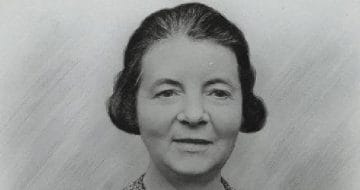From legal laughs and history to advice on winning arguments and understanding the City

Feeling prepared to start the LLB, SQE or PGDL?
As law school looms large for many, Legal Cheek shares some law-related literary classics and useful handbooks that will help newbies learn more about the legal sector and being a lawyer.
Letters to a Law Student
Written by Cambridge law professor Nicholas J McBride, this book spills the insider secrets on how to get the best marks in exams and handle with the trials and tribulations of studying law. Law school starters are also given the opportunity to gaze into a crystal ball as the book lays out what you can do with a law degree and how to take your next steps starting out in the legal sector. This appreciative reader gave it this review: “Everything you need to succeed as a law student is all in here.”
The Rule of Laws
Not to be confused with former Law Lord Tom Bingham’s classic ‘The Rule of Law’ (see below), Oxford Uni professor of the anthropology of law Fernanda Pirie’s new book reviews the 4000-year history of law going all the way back to Hammurabi and beyond! The book teases out some fascinating trends in this whistle-stop tour of legal history that takes the reader up to the present day’s proliferation of international law. “A great aid to understanding just how culturally embedded systems of rules and therefore laws and policy are around the globe,” says one reader.
Justice on Trial
Criminal barrister Chris Daw QC, who is currently in the news for his role as Ryan Giggs’ defence barrister in the ex-footballer’s assault trial, provides a hard-hitting account of some of the problems in the criminal justice system. He goes on to offer some a radical program of reform including abolishing prisons and legalising drugs. This book will challenge any stereotypes you have about criminals with insight from someone who has “looked into the eyes of murderers, acted for notorious criminals, and listened to the tales woven by fraudsters, money launderers and drug barons”. One reader raves: “This book is one I think everyone in society should read.”
Online Courts and the Future of Justice
Whether you have your eyes on a career as a solicitor or at the bar are likely to encounter talk of legal tech. Former Oxford jurisprudence professor Richard Susskind offers a prescient insight which evaluates and promotes many of the tech solutions that were at the heart of justice systems’ responses to the pandemic over the world. The book makes the case for the greater use of online courts exploring the issue not only from a practical perspective, but also the moral and jurisprudential dimensions too. “Although Susskind is a passionate advocate of online courts, his argument is throughout balanced and scholarly. His writing is crystal clear and admirably free of complex, technical detail,” praises one review.
The Money Machine: How the City Works
For all of you hoping to use your law degree to get a TC at a big corporate law firm, look no further than this classic pocketbook of financial markets fundamentals. The book covers some of the fundamentals of finance, tackling questions such as what causes the pound to rise or interest rates to fall and why is it we need the Money Machine — and what happens when it crashes?
After reading, you should be able to tackle FT articles and avoid any awkward umming and erring when a law firm partner asks you what a bond is in an interview. “Coggan does make a good job at putting it all into context in plain language, making it all quite digestible and relatable via simple examples, short historical backgrounds, explaining the reasons for certain changes and developments and reflecting the 2008 crash. Very good,” writes one fan.
The Secret Barrister
You may well have already received this one for your birthday, Xmas or even as a congratulatory gift for making it to law school! The anonymous blogging barrister is a household name known for cutting through political rhetoric and exposing the current state of the criminal justice system. They have now penned three books on this topic, so if you enjoy the first one then there’s still more to look forward to. “Excellent. An informative, interesting, entertaining, page-turner of a book,” notes one happy bookworm.
The Devil’s Advocate
For those inspired by the above to go and become a criminal barrister, look no further than this book for some first-hand top tips from a QC specialising in both domestic and international criminal law. The book offers an introduction to advocacy exploring its techniques for a killer cross examination, controlling witnesses and putting in a persuasive performance in front of a judge and jury. Although nothing beats the real thing, this book, labelled by aficionados as “the bible for advocacy”, will definitely stand you in good stead before a mooting competition for those so inclined.
Misjustice: How British Law is Failing Women
Another powerful critique of the justice system can be found in this book by Baroness Helena Kennedy. The Labour peer and criminal QC, who famously acted in the Brighton Bombing Trial, the Guildford Four Appeal and the abduction of Baby Abbie Humphries, forensically examines how the legal system is discriminating against and failing women. “Outstanding book, informative and powerful — a must read for anyone and everyone,” says one reviewer.
Trials of the State: Law and the Decline of Politics
This book expands upon the former Supreme Court Justice Lord Sumption’s 2019 Reith Lectures, which you can listen to here. Sumption is a rare breed of judge who has been very outspoken with his opinions following his retirement from the UKSC and has set out his thoughts on the constitution, democracy and human rights in this book. In line with his reputation for being a formidably persuasive barrister, his original and thought-provoking yet extremely clear and accessible writings are definitely worth a read. “So well written, so well argued and so interesting that they will also appeal to the lay person for whom they are primarily intended. This is legal writing at its very best,” pens one reader.
The Rule of Law
Another Supreme Court Justice who has written a popular and widely accessible legal text is Lord Bingham. In this foundational work, Bingham tries to pin down exactly what is meant by the elusive term and much bandied-about term ‘the rule of law’. This short book, which has become syllabus material, clearly and concisely lays out the development and key qualities of this important concept that will undoubtedly be of interest to any budding public law students. “Prospective law students should read this in the summer before the first year’s first semester,” recommends one reviewer. We at Legal Cheek certainly agree!


